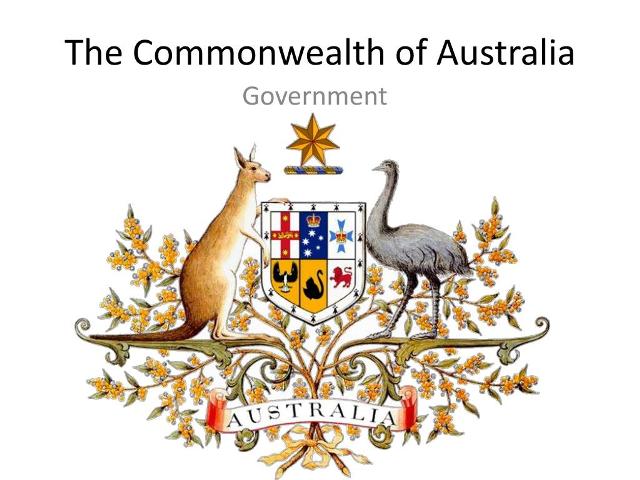 The Coat or Arms of Australia
The Coat or Arms of Australia
[This is an excerpt from an article in the latest edition of The Round Table: The Commonwealth Journal of International Affairs. Opinions expressed in articles do not reflect the position of the Round Table.]
Nearly forty-five years have passed since the Commonwealth of Australia experienced the greatest constitutional crisis in its history. On 11 November 1975 Sir John Kerr, the then Governor-General, sacked the Labor government led by Gough Whitlam, replacing it with a caretaker centre-right Coalition government under Malcolm Fraser pending a general election.
While Australian politics might have reverted to relative normality soon after that tumultuous event, some people have continued to follow Whitlam’s exhortation to ‘maintain your rage’. One of these is Jenny Hocking, a professor emeritus at Monash University (Melbourne) and author of a two-volume biography of Whitlam. She mounted a court case to obtain access to correspondence between Kerr and the Queen over the course of Kerr’s governor-generalship (1974–1977). Buckingham Palace and the Australian government argued that this correspondence was personal, whereas Hocking maintained the file should be in the public domain; in the normal course, the correspondence would have been released in 2027, subject to the approval of the private secretaries to the governor-general and the Queen. On 29 May 2020, however, the High Court ruled in Hocking’s favour, and the Australian Archives have now made the material available online.
The letters, numbering 212, reveal as much about Kerr’s character and concerns, as about the way in which Buckingham Palace engaged with the Governor-General. Most of the correspondence is between Kerr and Sir Martin Charteris as the Queen’s private secretary. Presumably, Sir Martin took up major issues with the Queen and she was in broad agreement with his responses.
The letters relating to the Dismissal show that Kerr made the decision alone. He had advice from Charteris about the reserve powers: these powers, according to Charteris, should only be exercised as a last resort, after all political means had been exhausted. Kerr acted prematurely, failing to heed the advice to allow politics to take its course.
The situation whereby Kerr felt compelled to act had arisen in the first place because of changes in the Senate. Two senatorial vacancies were filled with independents rather than Labor members contrary to prevailing convention (this can no longer happen due to a constitutional amendment in 1977). Taking advantage of this new situation and in response to various scandals undermining the government, Malcolm Fraser (federal parliamentary leader of the centre-right Liberal Party since March 1975) moved to block the passage of supply through the Senate (the convention, but not constitutional stipulation, was that this was a formality). The opposition parties were able to do this due to the convention about filling vacancies being broken. Fraser wanted a full general election in anticipation of a Coalition victory (as ultimately happened), whereas Whitlam was only willing to agree to a half Senate election. Kerr (as the Palace Letters attest) was concerned that Whitlam would learn of what he as governor-general was contemplating, and request the governor-general’s dismissal by the Queen. As a constitutional monarch, the Queen would have been bound to follow this advice; Kerr’s action kept the Palace at arm’s length from the crisis (for which Sir Martin expressed gratitude). Another possibility if Whitlam had been more quick thinking on 11 November would have been for Labor senators to move to have the passage of supply delayed (they did not have the numbers to block supply), thus presenting the newly commissioned Fraser government (and Kerr) with the same dilemma as had confronted Whitlam.
The alternative to Kerr’s action was to allow politics to play out further. The Senate had not actually voted on supply. Even if convention had been overthrown and supply blocked, the parties invoking such a course of action would have experienced considerable public antagonism. This situation occurs from time to time in the United States where, clearly, the Senate must approve appropriation bills. With federal programmes suspended and civil servants being stood down, there is considerable pressure for the two houses to compromise.
In relation to contemporary Australian politics, the responses to the Palace Letters have been predictable.
Derek McDougall is a Professorial Fellow, School of Social and Political Sciences, University of Melbourne, Australia.



